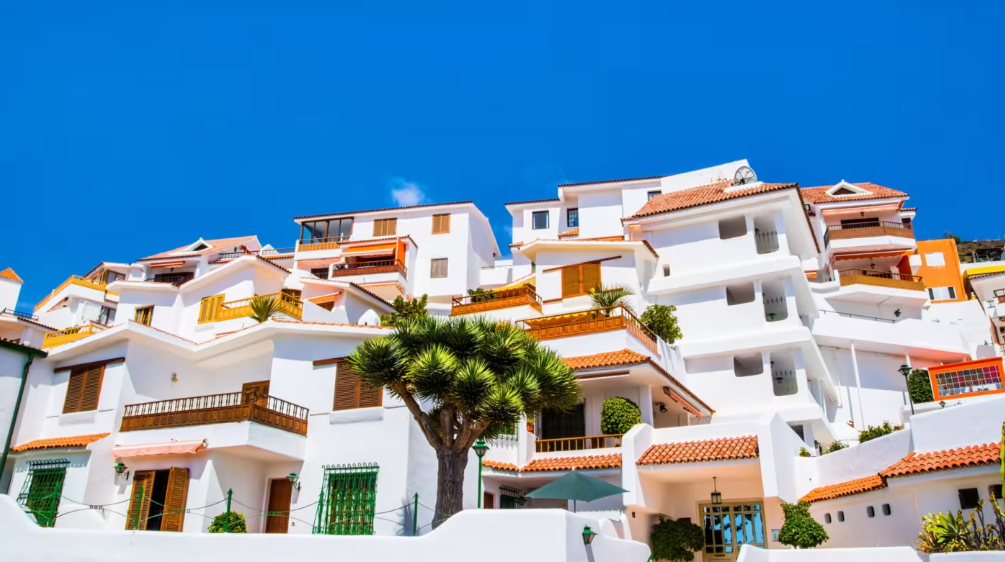The Costs and Taxes Associated with Buying a Home in Spain in 2025
Saturday, March 29, 2025
If you're planning to buy a property in Spain in 2025, it's crucial to be aware of the various costs and taxes involved. Navigating these additional expenses can be daunting, especially if you are an expat moving to Spain for the first time. This guide breaks down the costs and fees to help you better prepare for your property purchase in Spain.

Initial Considerations
Before delving into the specifics of buying property in Spain, it's important to note that a mortgage is not the sole financial commitment you will encounter. Spanish banks typically finance up to 80% of the property's value if it will be your primary residence. This means you'll need to have at least 20% of the property value saved for the deposit. Additionally, you must consider other expenses such as taxes, notary fees, and various administrative and legal costs.
Primary Costs
The total expenses related to buying a property in Spain, excluding the deposit, typically amount to between 10% and 12% of the property's purchase price. These figures include various compulsory fees, regardless of whether the property is new or pre-owned. Here are the primary expenses you'll need to account for:
Notary Fees
In Spain, notaries perform the role that solicitors ordinarily handle in the UK when a property is bought. Their fees are regulated by the state and vary depending on the property's price. For instance, notary fees can range from €600 to €875, but the cost for a €250,000 property might be around €1,000.
Land Registry Fees
Registering the property deeds signed by the notary also incurs a cost, which is governed by Spanish regulations. These fees are generally between €400 and €700, depending on the property's price.
Taxation
Taxes are a significant part of the cost of purchasing property in Spain, and the types and amounts depend on whether the property is new or pre-owned.
New Properties:
- VAT (IVA - Impuesto sobre el Valor Añadido): For new-build homes, you will have to pay a VAT of 10% of the property price. In the Canary Islands, this tax, known as IGIC (Indirect General Canary Islands Tax), is reduced to 7%.
- Stamp Duty (AJD - Actos Jurídicos Documentados): This is an additional tax on new properties, which varies by region. For instance, it ranges from 0.5% to 1.5% of the property price.
Pre-owned Properties:
- Property Transfer Tax (ITP - Impuesto sobre Transmisiones Patrimoniales): This tax is payable on the purchase of pre-owned homes. Rates vary from 4% to 10%, depending on the autonomous community. For example, in Ceuta and Melilla, the rate is 6%, while it can be as high as 10% in regions like Catalonia and Valencia.
Regional Tax Rates: New Property Purchases (2025):
| Autonomous Community |
AJD |
VAT |
| Andalucía |
1.2% |
10% |
| Aragón |
1.5% |
10% |
| Asturias |
1.2% |
10% |
| The Balearic Islands |
1.2% |
10% |
| The Canary Islands |
1.0% |
7% |
| Cantabria |
1.5% |
10% |
| Castile-La Mancha |
1.5% |
10% |
| Castile and Leon |
1.5% |
10% |
| Ceuta |
0.5% |
10% |
| Madrid |
0.75% |
10% |
| Valencia |
1.5% |
10% |
| La Rioja |
1.0% |
10% |
| Melilla |
0.5% |
10% |
| Murcia |
1.5% |
10% |
| Navarre |
0.5% |
10% |
| The Basque Country |
0.5% |
10% |
Regional Tax Rates: Pre-owned Property Purchases (2025):
| Autonomous Community |
ITP |
| Andalucía |
7% |
| Aragón |
8% |
| Asturias |
8% |
| The Balearic Islands |
8% |
| The Canary Islands |
6.5% |
| Cantabria |
10% |
| Castile-La Mancha |
9% |
| Castile and Leon |
8% |
| Ceuta |
6% |
| Madrid |
6% |
| Valencia |
10% |
| La Rioja |
7% |
| Melilla |
6% |
| Murcia |
8% |
| Navarre |
6% |
| The Basque Country |
4% |
For certain groups, such as large families, individuals with disabilities, and young buyers, there could be reduced tax rates. For instance, in Madrid, families with three or more children may only pay 4% property tax if they buy a new home as their primary residence.
Additional Costs
Adviser Costs:
Hiring a 'gestor' (an administrative adviser) can be beneficial, especially if you don't speak Spanish. These advisers can help with tax settlements and paperwork. This service usually costs around €300.
Mortgage-Related Costs:
If you need to take out a mortgage, you should be aware of potential additional expenses:
- Property Valuation: Required for obtaining a mortgage; this service can cost between €250 and €600. Some banks may cover this cost.
- Mortgage Opening Fee: Some banks may charge an opening fee, which could be up to 2% of the loan amount, though many banks nowadays do not apply this charge.
Buying a property in Spain involves several additional costs and taxes beyond the property's sale price. Understanding these expenses is crucial to avoid any unexpected financial burdens. Always consult with local professionals to get accurate, tailored advice based on your specific circumstances.
By planning ahead and budgeting for these essential costs, you can enjoy a smoother process as you embark on this exciting journey of purchasing your new home in Spain.
 0
Like
Published at 10:23 AM Comments (0)
0
Like
Published at 10:23 AM Comments (0)
Property Law in Spain - Changes for 2025
Wednesday, March 12, 2025
The Spanish property market in 2025 presents a dynamic mix of opportunities and challenges, marked by significant legal updates affecting rentals, evictions, taxes, and purchases. This article provides a comprehensive overview of these changes, empowering landlords, tenants, and buyers to make informed decisions.

Persistent Property Price Growth:
Despite government efforts to enhance affordability, the Spanish property market is projected to experience continued price increases throughout 2025. This surge is fueled by a persistent supply-demand imbalance, particularly in sought-after coastal regions where new construction lags. Consequently, prospective buyers are advised to act promptly to capitalize on current market conditions.
Rental Market Overhaul:
The rental sector has undergone substantial transformations in 2025, aiming to foster a more balanced and sustainable environment. Key changes include:
- Extended Contract Durations: Landlords can now offer rental agreements of up to five years, with tenants having the option for an additional five-year renewal. This measure promotes stability and reduces the frequency of contract renewals.
- New Rent Adjustment Index (IRAV): Effective January 1, 2025, the IRAV replaces the CPI for rent adjustments, capping increases at the lowest value among:
- The previous year's annual CPI change.
- The three-year average annual CPI change.
- The five-year average annual CPI change.
- This ensures more predictable rent adjustments, primarily for contracts signed after May 25, 2023, excluding temporary rentals and commercial properties.
- Shifted Financial Responsibilities: Landlords are now mandated to cover all costs associated with rental agreements, including estate agent fees and rent default insurance, easing the financial burden on tenants.
- Revised Definition of Large Property Owners: Regional governments can lower the threshold for large property owners to those with more than five properties in "tension zones," granting them greater regulatory control.
- Stricter Regulations in Stressed Rental Markets: Areas where rents or mortgage costs exceed 30% of household income or house price growth outpaces inflation are subject to enhanced controls to curb excessive rent increases.
- Tax Incentives for Landlords: Tax breaks are offered to landlords, including reductions in personal income tax on rental income, with higher reductions for renovated properties and rentals in stressed areas to specific demographics.
Taxation Updates:
- New Rubbish Tax: A nationwide rubbish tax will be implemented from April 2025, with responsibility for payment varying by locality.
- Changes to Property Tax (IBI) Rates: IBI rates are being adjusted across Spain, with increases in many cities and a decrease in Madrid. A surcharge of 150% will be applied to IBI on properties vacant for over two years, owned by people with at least four properties.
- Tourist Rental Regulations: New rules for tourist rentals require community approval, stricter regulations, higher taxes, and uncertain transferability of rental permissions, aiming to balance short-term and long-term rental availability.
Squatter and Eviction Laws:
- Fast-Track Squatter Evictions: A new law introduces a rapid trial process for squatter evictions, resolving cases within 15 days, with police intervention clarified, especially within the first 48 hours.
- General Evictions: General eviction processes remain governed by the 2023 Housing Law, with landlords advised to seek legal counsel for compliance.
Property Purchases in 2025:
- End of Golden Visa Program: The Golden Visa program, granting residency to non-EU citizens investing €500,000 in property, will end on April 3, 2025.
- Proposed Restrictions on Non-EU Buyers: A proposal is being considered to ban non-EU foreigners from buying property unless they or their families reside in Spain. This proposal is under debate, and regional governments may oppose it.
- Market Influences: Factors like interest rates, housing availability, economic growth, and population changes significantly impact property prices, despite potential restrictions on foreign buyers.
Key Considerations:
The 2025 changes reflect a commitment to housing affordability, tenant protection, and property owner rights. Landlords benefit from extended contracts and a new rental index, while tenants enjoy capped rent increases and enhanced protections. The fast-track squatter eviction process offers reassurance for property owners.
Staying informed and compliant with the latest regulations is crucial for navigating Spain's dynamic real estate market in 2025. Consulting with legal experts is advisable for personalized guidance.
 0
Like
Published at 11:21 AM Comments (0)
0
Like
Published at 11:21 AM Comments (0)
Last Opportunity to Secure Spain’s Golden Visa
Saturday, March 8, 2025
If you've ever dreamt of enjoying the sunny landscapes and vibrant culture of Spain, it’s important to act quickly. Spain's highly popular Golden Visa programme, which provides significant benefits for non-European investors, will soon be coming to an end. The Spanish government has decided that the programme will close on 3rd April 2025. This means you only have a limited time to take advantage of this incredible opportunity.

The Golden Visa is a residency permit granted to non-European nationals who make a significant investment in Spain. The most common investment is purchasing real estate, though other options are available. This visa allows you to live and work in Spain, with an option to obtain permanent residency and even Spanish nationality over time. Initially, the Golden Visa is issued for three years and can be renewed every five years.
Benefits of the Spanish Golden Visa
Securing a Golden Visa offers multiple advantages:
-
Immediate Residency: With a Golden Visa, you and your family can reside in Spain immediately, bypassing the typical 90/180-day Schengen rule.
-
Freedom of Movement: The visa allows you to travel freely within the Schengen Area, which includes 27 European countries.
-
Tax Benefits: One of the unique features of the Golden Visa is that it doesn't automatically make you a tax resident in Spain upon renewals. This means you can benefit from living in Spain without facing additional tax obligations.
-
Family Inclusion: Not only can your immediate family benefit from the visa, but it also allows you to include your parents.
-
Clear and Consistent Rules: The Golden Visa is initially granted for three years and is renewable for five-year periods, provided you continue to meet the requirements.
Various Paths to Obtain a Golden Visa
There are different routes through which you can qualify for a Golden Visa:
-
Real Estate Investment: The most popular and cost-effective way is by investing at least €500,000 in Spanish real estate. This investment can be spread across one or more properties.
-
Bank Deposit: Alternatively, you can deposit €1 million in a Spanish bank.
-
Capital Investment: Another option is to invest €1 million in shares of a Spanish company that is publicly traded.
-
Public Debt: Investing a minimum of €2 million in Spanish Treasury bonds is also a valid path.
-
Business Project: Establishing a business in Spain that generates employment, has a significant socioeconomic impact, or involves scientific and technological advancements is another valid option.
How to Apply for a Golden Visa
The application process for the Golden Visa is relatively straightforward:
-
Document Collection: Gather all necessary documentation.
-
Electronic Submission: Submit your application electronically to Madrid.
-
Quick Approval: Golden Visas are typically granted within three weeks.
-
Residency Card: Once approved, obtain your biometric residency card.
Frequently Asked Questions
Can I still apply for a Golden Visa?
Yes, you can still apply. The deadline for applications is 3rd April 2025. It’s crucial to act quickly to ensure you don’t miss this opportunity.
What if I apply now and the programme ends in April?
Don't worry. If you apply before the deadline, your application will be processed as usual, and you will still be entitled to renew your Golden Visa indefinitely.
Can I work in Spain? Can my family work in Spain?
Yes, the Golden Visa allows both you and your family members to work in Spain.
Are Golden Visas retroactive?
Yes, they are. If you purchased a property in Spain on or after 29th September 2013, you may be eligible for a Golden Visa.
Can I live anywhere in Spain?
Absolutely. Whether you prefer the bustling streets of Madrid, the beautiful beaches in Costa del Sol, the rich history of Granada, or the vibrant culture of Barcelona, you have the freedom to choose the location that best suits your lifestyle.
Take Action Now
There are numerous visas available for those planning to move to Spain, but the Golden Visa remains the most advantageous. It's no wonder that there has been significant political pressure to end the programme due to its popularity and the substantial benefits it offers.
If you have aspirations of living in Spain, now is the time to act. The window to apply for a Golden Visa closes in a matter of months, making this your last chance to secure one of the most privileged residency permits available. Whether your interest lies in the beautiful landscapes, rich culture, or vibrant cities of Spain, the Golden Visa provides a unique pathway to making that dream a reality.
 3
Like
Published at 1:22 AM Comments (0)
3
Like
Published at 1:22 AM Comments (0)
Spam post or Abuse? Please let us know
|
|